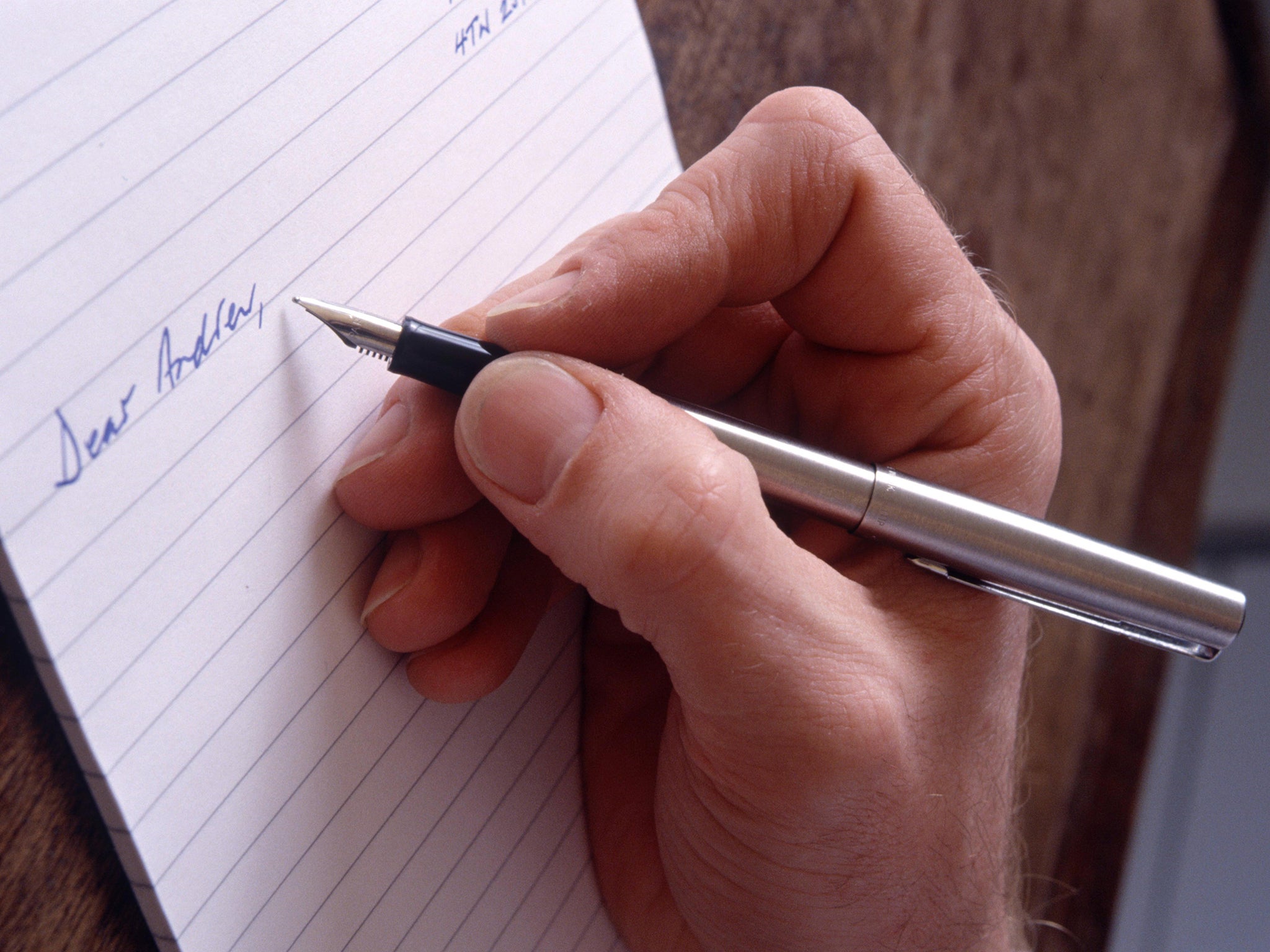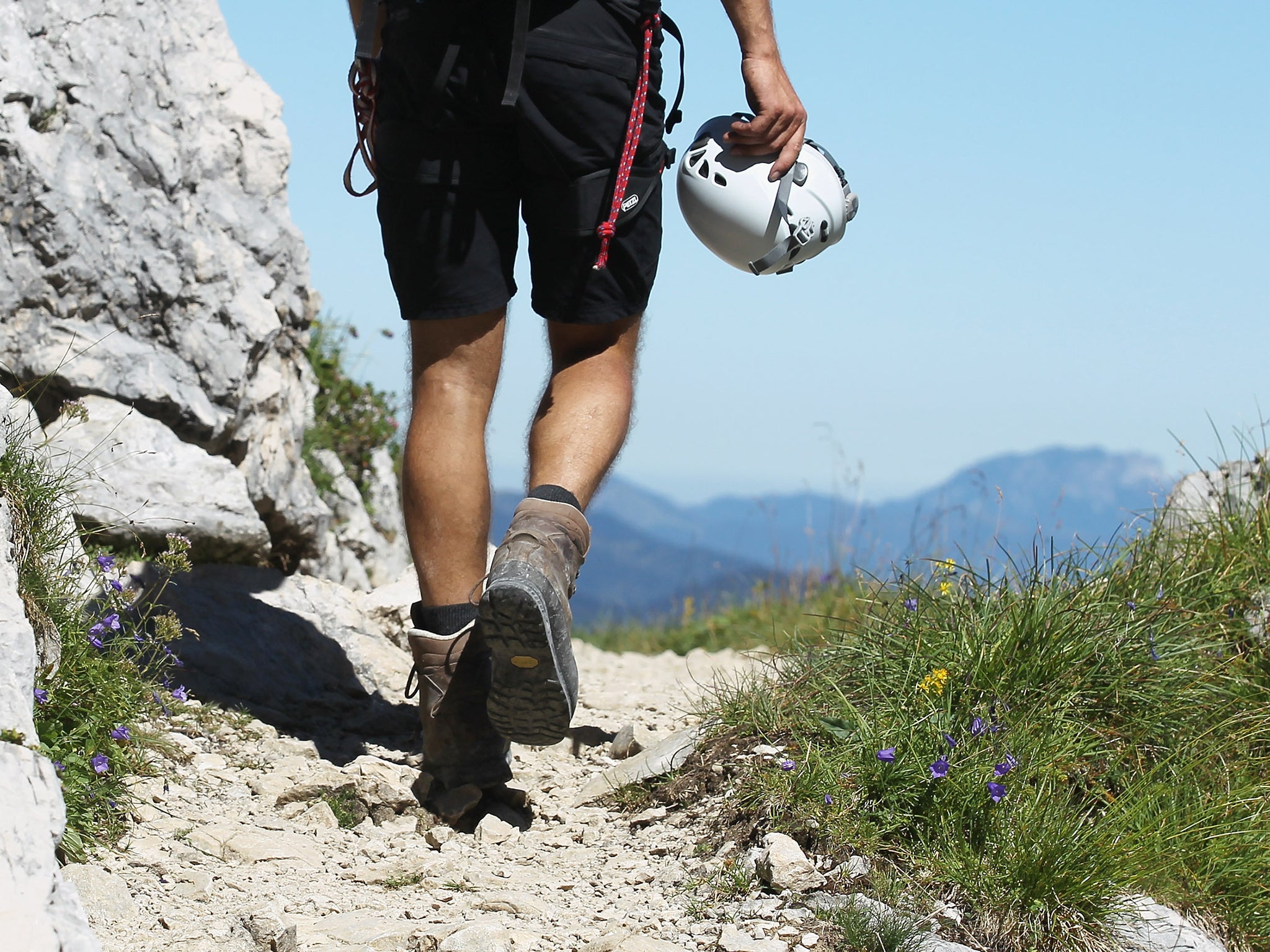Going to work, writing letters for the future and speaking your mind: Day-to-day living when you know you’re dying
People have been sharing their stories of how they choose to live when they know how much time they have left

Your support helps us to tell the story
From reproductive rights to climate change to Big Tech, The Independent is on the ground when the story is developing. Whether it's investigating the financials of Elon Musk's pro-Trump PAC or producing our latest documentary, 'The A Word', which shines a light on the American women fighting for reproductive rights, we know how important it is to parse out the facts from the messaging.
At such a critical moment in US history, we need reporters on the ground. Your donation allows us to keep sending journalists to speak to both sides of the story.
The Independent is trusted by Americans across the entire political spectrum. And unlike many other quality news outlets, we choose not to lock Americans out of our reporting and analysis with paywalls. We believe quality journalism should be available to everyone, paid for by those who can afford it.
Your support makes all the difference.The importance of palliative care has been given a renewed focus after the World Health Organisation (WHO) announced that less than 14 per cent of those in need of end of life care actually receive it.
The WHO estimates that each year 40 million people globally need palliative care. While the UK was recently voted the best place in the world to die due to the NHS, a strong hospice network and specialist staff, the WHO has said it will be working with governments to expand the palliative care services they provide.
On Reddit, many users with terminal conditions have been sharing their stories of how they are choosing to live their lives in the knowledge they have a finite period of time until their death. Answering the question: “Redditors who know how much time they have left – how does your day look like?”, people have been sharing their experiences from getting on with their day-to-day lives, to making preparations for their families after their death, choosing to lead completely new lives, or simply not giving a “flying f***” about what other people think.
Getting on with the day-to-day:
“I can't do much anymore that doesn't leave me gasping and hacking, so a brisk walk is out of the question, which is irritating. I used to love camping, hiking, biking, yada, yada, yada.
“But I get up every morning, get the kids up, dressed, and off to school. Work from home and then pick them up and get dinner started. Wife works away from the home and goes to school at night to finish an assoc. in health care, as she will need a better income eventually. I did well professionally and things will be OK financially. We have a pretty solid five year plan and things will be fine. All told, I'm pretty lucky.”
caractacusp, 54, interstitial lung disease who expects to die around the age of 60
“What's my day like? 100% normal, unless it isn't. If I'm not sick, it's like any other day. I'm taking off the excess weight. Very limited alcohol, no pain relievers unless I just can't take it anymore. I've got a husband and kids who have their own lives and I can't have them wasting my time feeling sorry for me. All I can do is raise them up to be independent with strong family bonds.
“I don't expect to see 60. Hell, 50's starting to look suspect. But every day is a gift. Some days, that's all I've got, but it's something.”
tofu_llama, 42, polycystic liver and polycystic kidney disease and untreatable anaemia

“With early cancers they go in guns blazing, chop bits out and pump you full of nasty chemos to try and beat it. With advanced cancer they are just trying to keep you stable and buy time.
“For the first 18 months it was all I could think about, it influenced everything around me, I did the big expensive trip, connected with old friends, etc. But after I did all that nothing changed. I still go to work every day, I go to the gym, I visit friends, I have the occasional beer, I am renovating a house, and being single I am out and about dating. Because I feel fine I manage to forget most of the time.
“It is like living under the sword of Damocles. But I've just gotta get on with it.”
T_Max100, 40, stage four breast cancer
Getting to speak your mind:
“I've had a few surgeries and I'm actually doing great and so far I'm NED (no evidence of disease) I'm still in one piece and feeling like I did in my 20's. I still carry the overwhelming at times feeling that this life I have is a gift and I am constantly grateful for all experiences I get to still have.
“I have a much shorter tolerance for b******t and a******s and pretty much just speak my mind now whereas before I would reserve commenting to spare hurting someone’s feelings or unwanted attention. Damn it feels good to be a gangsta!”
MAD_PainTeR_2015, 44, stage four colon cancer
"In 2013 I was told I'd have 'maybe six months to a year'."
“2+ years on I'm still here, my oncologist seems amazed every time I see him.
“I know my time is limited, I've already outstayed my welcome, and I suppose the biggest change I've noticed in myself is I no longer give a flying f***, I speak my mind at all times, whereas before I was fairly introverted, these days I just don't care what anyone else thinks of me.”
indifference_engine, 41, pancreatic cancer
Making preparations:
“I'm not blowing money left and right because I want to leave it behind for my girls. […] Have written some letters for my daughter to get when she is older. Have put together a lot of home videos from when she was little, stuff she won't remember and I won't be around to tell her about... early birthdays, time we spent together, I want her to have those memories. Made two videos, one for my wife and one for my girl. I want them to be able to see me happy, not hurting, see my face, hear my voice.”
Outside of this, he said he tries to “go to work when I can, work from home when I can’t,” to spend as much time with his family as he can, and to “eat good steak, drink good alcohol, enjoy every sunrise, sunset, and moment in between.”
wearealldying_, 42, liver cancer
"I sold my shares [in my] company to my friend for $1. Afther that was settled I looked up the girl who was always the apple of my eye in school."
“We have spent the last 5-6 months planning an all-out vacation that I hope to die on, quite honestly. We leave in just under two weeks.
“Arrangements have been made with my lawyers to take care of my estate. My house has already been sold, the money that's left in my account when I'm gone will go to food banks, library, and schools in my hometown, and every employee currently working at the business will get a one-time check; $3k for every year with the company.”
Cancerthrowaway1111, 34, stage four cancer
Complete life changes:

“I dropped most of my friends and completely changed my lifestyle. I had a few focuses: living in the moment, a low stress life, and getting enough done to feel good about myself.
“Now after chemo I might get more time and who knows what could come up if I get long enough. I've just gotten a girlfriend for the first time since diagnosis. Life is... different, but the same. The tumor is still there.”
wibbitywobbitywoo, brain tumor
"I told my doctor I wanted to switch to palliative care and discontinue all chemo.
“And it changed my life. It wasn't easy. I've been through three surgeries since then. I almost died from a post-operative infection. But now my disease is under control and I live a mostly normal life.
“I have received a chance to really live again, and I'm not wasting that time worrying about death […] I won't see my kids graduate high school, or get married. I probably won't be around for their first dates, or first crushes. But for me it's enough that I got to kiss my son on his first day of school. That I have got to sit down and teach my daughter her letters. That I have done trips, wrote letters, and created memory after memory.
“This time last year, my life was already gone. And somehow, amazingly, I have it back.”
heavyhandedsara, 30, stage four rectal cancer
"At 21 I had a serious heart attack, my survival rate was something like six per cent. I ended up having an ICD put in. There is no cure and I was told at the time that I should go live my life as normal as I could.
“It changed my life, and still every day is affected by my heart attack. I wake up, and really try to keep my day as simple and stress free as I can. I hate to call it selfish, but at the time I was in college and when I had the heart attack I realized everything I had been doing in life was planning for a future I won't ever have.
“All of a sudden I didn't buy into the degree, college debt, and planning for retirement. The idea of "retirement" was all I thought about. Traveling, my own time, finally enjoying life.
“So, now when I wake up I chase retirement. I took off and hiked the Appalachian Trail, traveled the country, traveled South America. It gets lonely, it gets hard, but at the end of the day I just have to go to bed and think, the time to travel and see the world is today instead of the future because I could die at any time.”
TrentDen, 26, Brugada syndrome
Join our commenting forum
Join thought-provoking conversations, follow other Independent readers and see their replies
Comments